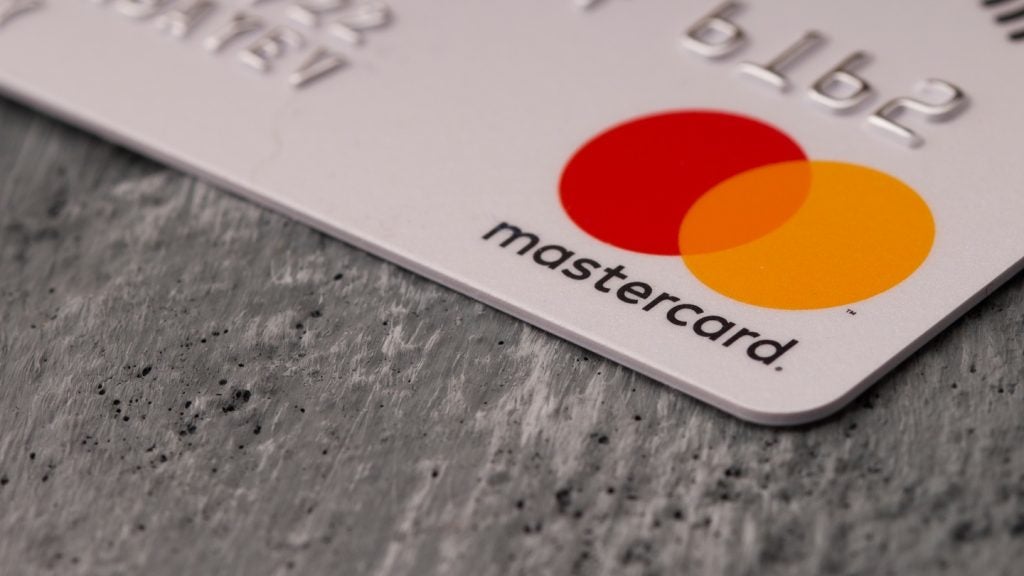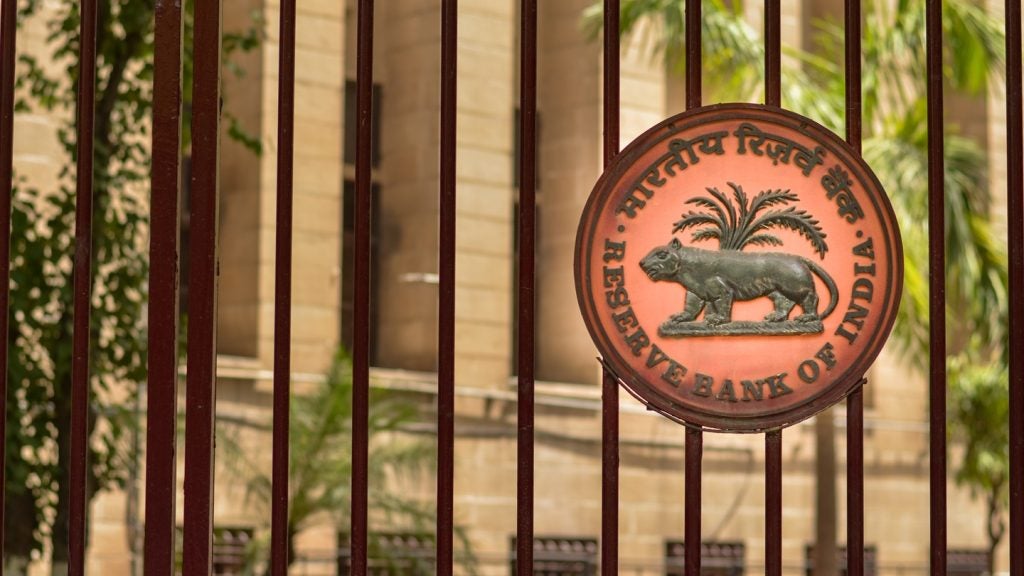online payments have gained a solid foothold in the US online
retail payments market. Speaking to market participants and
analysts to gauge the future potential of alternate online payment
services, Robin Arnfield found sentiment to be generally
positive.
 Even tough economic times can present
Even tough economic times can present
opportunities, something that is particularly true for suppliers of
alternative internet payments in the US as growing numbers of
consumers turn their backs on credit cards, the traditional online
payments means.
Indicatively, the world’s largest retailer Wal-Mart has reported
the proportion of credit cards being used for purchases is
declining, reversing three years of double-digit growth. Also
notable is a survey conducted by credit analysis specialist
Trans-
Union which revealed 73 percent of US consumers were planning to
use cash and savings to finance Christmas holiday purchases, while
only 18 percent plan to use their credit cards

Access deeper industry intelligence
Experience unmatched clarity with a single platform that combines unique data, AI, and human expertise.
Banks, which are experiencing rising credit card debt
write-offs, are also playing a key role in dampening the use of
credit cards by reducing cardholders’ credit lines.
“Consumers are faced with an ever-tightening credit market,
which means a drive to debit and other cash-based alternative
payment methods,” observed research firm Javelin Strategy in a
recent study.
Add to this situation merchants keen to reduce the cost of
online transactions and the opportunity for low-cost alternative
e-payments companies – some 14 of them operating in the US – to
gain market share at the expense of credit card issuers is
significant. There is also significant scope to increase the market
share of alternative payments which, estimates Red Gillen an
analyst with research firm Celent currently account for 15 percent
of the total US consumer e-commerce market.
“The rest of the e-commerce market is the payment cards
industry’s to lose, if alternative payment solutions offer superior
value propositions while shifting funds sources to non-card
options,” Gillen observed in a report Alternative Realities, The
Commoditization and Allure of Alternative Payments.

US Tariffs are shifting - will you react or anticipate?
Don’t let policy changes catch you off guard. Stay proactive with real-time data and expert analysis.
By GlobalDataJavelin’s estimate of non card-based payments’ market share is
lower, 10 percent, totalling $148 billion in 2008. Of the other
payment means, Javelin estimates bank-issued credit cards accounted
for 55 percent, debit cards 27 percent, store cards 4 percent, and
prepaid/gift cards 4 percent.
By 2013, Javelin forecasts that bank-issued credit cards’ share
of the US e-commerce market – estimated to have grown by 80 percent
to $268 billion in the past few years – will have declined to 40
percent. Debit cards will account for 30 percent, store cards 7
percent, prepaid/gift cards 13 percent, and non card-based payments
11 percent.
Unlike Javelin and Celent, AiteGroup research director and
co-founder Gwenn Bezard is not convinced the alternative payment
service suppliers will hurt credit card issuers.
“The impact of non-bank alternative payment schemes on banks and
credit card firms is negligible,” Bezard stressed. “US issuers are
far more concerned about rising charge-offs and the bills going
through Congress about interchange and credit card fees, than they
are about PayPal.”
PayPal dominates
The alternative payments sector is dominated by eBay subsidiary
PayPal with its stored-value accounts, which users top up with
cards or via the automated clearing house (ACH) network from bank
accounts. According to PayPal its accounts contain over $3 billion
in stored value.
At the end of the third quarter of 2008 PayPal had 65 million
active account-holders (active over the previous 12 months) and 165
million registered accounts worldwide in 190 markets served by 16
websites of which 15 are outside the US.
Founded in 1998, PayPal continues to go from strength to
strength, reporting total transaction volume of $14.81 billion in
the third quarter of 2008, up 28 percent compared with the same
period in 2007. Of the total volume $7.55 billion was generated by
off-eBay merchants up 49 percent year-on-year and representing
almost 51 percent of total volume compared with 44 percent in the
third quarter of 2007.
Other alternative payments market players include a new
PayPal-style prepaid account from online retailer Amazon.com’s
Amazon Payments unit. This allows users to register their card or
bank account and their address with Amazon and use their Amazon
e-wallet to make purchases from other e-retailers.
Several services such as the National Automated Clearing House’s
(NACHA) Secure Vault Payments (SVP), eBillme and Moneta allow
shoppers to pay by setting up direct debits from their online bank
accounts via the ACH system. MyECheck, another alternate payment
specialist, enables customers to pay online with the electronic
equivalent of a paper cheque.
BillMeLater provides non-card based lines of credit to about 4
million US consumers, and processed an estimated $1 billion worth
of transactions in 2008 for its 1,000 merchant clients.
“Before authorising a purchase and issuing a loan to an
e-shopper, we carry out a real-time credit check,” Mark Lavelle,
BillMeLater vice-president of corporate development, told EPI. “We
accept payment by paper cheque, but the majority of our users pay
via the ACH network.”
The alternative payments companies hope to attract merchants by
offering low transaction fees. While online card payments attract
merchant fees of around 3 percent of transaction value, eBillMe
charges 1 percent for merchants with under $5 million in annual
sales.
Moneta says it lowers the cost of accepting online payments by
50 percent when compared to credit cards. It pays a share of its
interchange fees to banks for each user that a financial
institution enrolls in the Moneta service. BillMeLater charges 1.5
percent of the net transaction value plus a 15 cent per-transaction
fee.
Security
Although Javelin analyst Bruce Cundiff predicts a move away from
credit cards to debit cards for online purchases, he believes
consumers may be wary of using debit online, for fear of fraud. The
problem with debit payments is that, if a cardholder’s information
is stolen from an e-retailer, this opens up their bank account to
fraudsters.
“Security-conscious consumers will be attracted to payment
services which don’t disclose their financial information such as
bank account details or card numbers and expiry dates to
merchants,” Cundiff said.
When a customer uses PayPal, eBillMe or Moneta to pay an
e-retailer, the service acts as an intermediary, passing the
payment on to the recipient.
“PayPal’s success is due to the security it offers shoppers and
also due to the fact it is easy to use,” Cundiff explained. “Its
rivals will have to offer a similar level of convenience.”
With Moneta, eBillMe and NACHA SVP, customers making an
e-purchase are redirected to their bank’s website, where they have
to log on to their bank account and set up a payment to the
merchant.
“If the redirection process is cumbersome, consumers may abandon
their shopping cart and go to a merchant offering traditional
card-based payments,” said Cundiff. “The redirection to the
customer’s online banking account has to be seamless. E-merchants
want to find payment methods that have lower transaction costs than
cards. But there is no point in offering low-cost payment
mechanisms if they aren’t easy to use and the merchant loses the
business of their potential customers.”
In the case of eBillMe, the customer only pays after receiving
an electronic bill.
“There is a perception that, if consumers get a bill for an
online purchase, they may change their mind and abandon the
transaction,” said eBillMe vice-president of marketing Samer
Forzley. “But this is not realistic. If someone wants to buy a
laptop, then they will do their research, and then buy the
laptop.”
Forzley continued that eBillMe is available at over 200 US
retail websites including merchants such as buy.com and
tigerdirect.com.
“Merchants that use eBillMe see 1 percent to10 percent of their
transaction volume going via our system, depending on the season
and the type of merchant,” he said.
Moneta CEO Guido Sacchi explained his company avoids consumer
electronics and jewellery e-retailers because of the fraud
risk.
“We focus on airlines, as their websites have traditionally
forced customers to pay by card,” Sacchi said. “Other targets for
us are charities and universities.”
In a particularly significant development in November 2008,
Moneta became one of the payment options offered by Universal Air
Travel Program (UATP), a corporate travel payments network serving
airlines worldwide.
In the service to be offered to the 250 airlines utilising
UATP’s payment gateway services, Moneta will initially use the US
ACH network to enable consumers to pay online directly from their
current or money market accounts.
In 2009, Moneta plans to offer additional payment options
including international debit payments, credit cards, pay later and
pay early functionality.
“Airlines connected to UATP can now add Moneta to their retail
website checkout,” Sacchi added.
Other payment systems offered by UATP include PayPal,
BillMeLater, gift card company Stored Value Systems, and PIN debit
companies HomeATM and Acculynk.
For Moneta, NACHA SVP and eBillMe, it is important to build up
links with banks. But Cundiff says banks may be reluctant to
cannibalise the interchange revenues they receive from online card
payments by encouraging ACH direct debits for e-shopping. “ACH
transactions are very low-cost, so they aren’t a money-making
apparatus for banks,” he stressed.
Despite being owned by US central ACH switch NACHA, the NACHA
SVP service has yet to attract a significant number of banks,
Cundiff added.
Sacchi argued that by teaming up with an alternative payment
operator such as Moneta, banks will be able to promote their brands
in the non card-based e-payments space. Moneta is due to announce
its first bank partners at the end of 2008, he added.
PayPal favours ACH
PayPal has an initiative to migrate more PayPal account top-ups
to ACH from cards, as ACH is much cheaper than the interchange it
pays on card top-ups, said Cundiff. Two-thirds of PayPal US account
top-ups come via ACH, with the rest originating from cards.
Increased use of ACH for top-ups is not good news for banks.
“PayPal attracts new users to e-shopping who wouldn’t have used a
card online due to security fears, so this is an extra source of
interchange for banks,” said Bezard.
However, PayPal also wants to collaborate more closely with
banks, for example to enable direct links from customers’ bank
accounts to PayPal. One possibility envisaged by PayPal is that,
when customers open checking accounts with a bank, they would
automatically be offered a linked PayPal account.
In October 2008, eBay acquired BillMeLater in order to expand
its payments offerings. According to research firm JupiterResearch,
PayPal and BillMeLater were offered by 16 out of the top 50 US
e-commerce sites in July 2008.
Tim Sherwin, executive vice-president of US online processor
CardinalCommerce, said he believed BillMeLater complements
PayPal.
“PayPal has its own buyer credit service that offers loans for
small items, and BillMeLater supplies loans for bigger purchases,”
said Sherwin.
CardinalCommerce provides a single interface for merchants
wanting to accept alternative payments.
“E-retailers don’t want to have to interface with multiple
payment platforms,” Sherwin stressed. “We handle all the different
payment relationships for them.”
In October 2008, CardinalCommerce formed an alliance with the
world’s largest payments processor First Data. The deal provides
First Data’s 100,000 online merchants with access to the
alternative payments services provided on CardinalCommerce’s
platform.
Sherwin said CardinalCommerce expects to announce similar deals
with other major card processors.
“First Data is getting into the alternative e-payments space,”
he added. “As an acquirer, First Data realises that, if its
merchant clients want to take PayPal or eBillMe, it must enable
them to do so.”
Perhaps more than anything else the need to meet the demand for
services such as PayPal, eBillMe and BillMeLater could be an
indicator that in years to come non credit-card payments may become
viewed as increasingly mainstream than alternate.
Of particular significance, a survey by non-profit research
institution Pew Research Center, 75 percent of internet users
agreed with the statement posed by Pew that they do not like
sending personal or credit card information over the internet. The
US has some 220 million internet users and 165 million credit card
holders.







